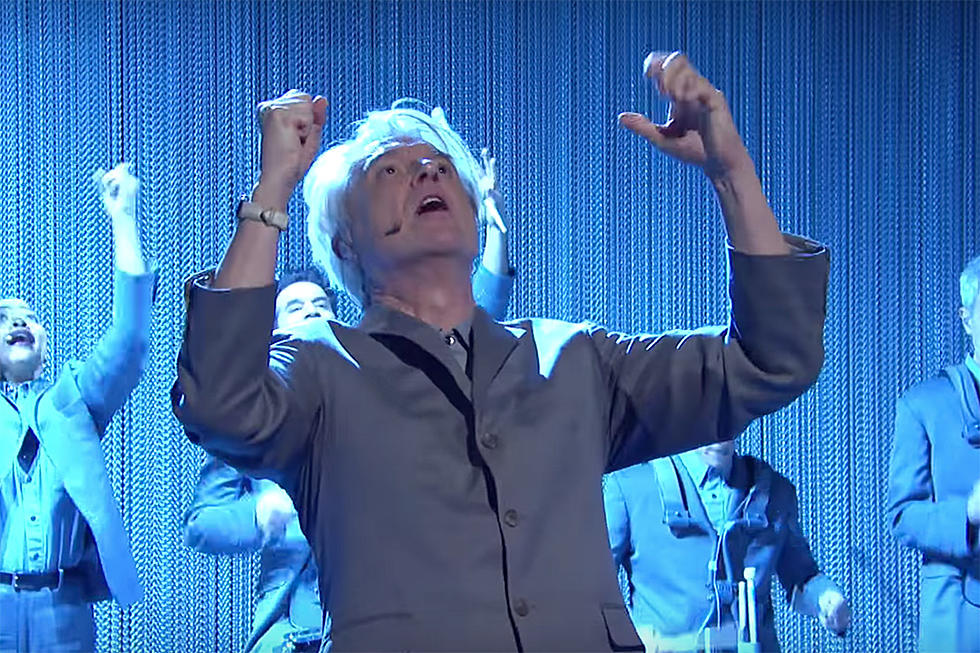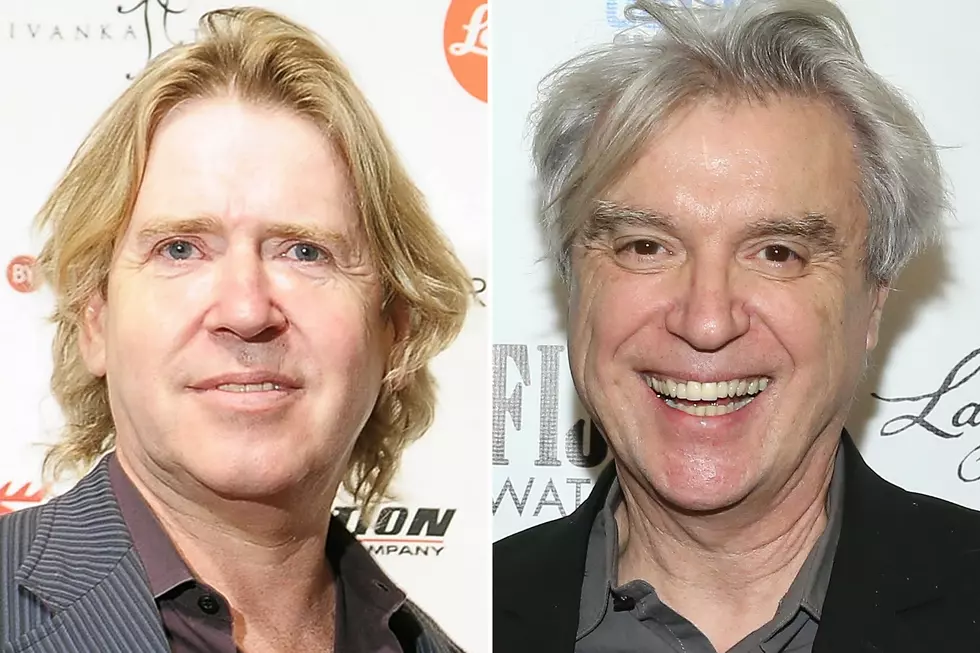
How the Heads Tried to Move On Without David Byrne With ‘No Talking Just Head’
After nearly a decade of solo work, members of the Talking Heads were ready to get back together. The only problem? Frontman David Byrne wasn't one of them. Chris Frantz, Jerry Harrison and Tina Weymouth ultimately decided to move on without him, releasing the impishly titled No Talking, Just Head on Oct. 8, 1996, but not before a nasty lawsuit tore the band – and its name – in half.
"We tried everything in our power to have David reconsider and join us, but after a certain point, we just gave up," Frantz told the Orlando Sentinel in 1996. "He's doing his thing and we're doing ours."
Before then, that meant work as the Tom Tom Club for Frantz and Weymouth, and with the Casual Gods for Harrison. They'd also been involved with producing various artists, while Byrne built an early solo career. For most of that time, the other three say they felt the Talking Heads would eventually regroup for a follow up to 1988's well-regarded Naked.
"We waited eight years," Weymouth told the Hartford Courant in 1996. "We knew it wasn't going to happen, when David refused to come to meetings with us. He'd send his lawyer instead."
An announcement of the Talking Heads' breakup, made by Byrne in the press without their prior knowledge, didn't change the essential musical chemistry that remained – as Frantz, Harrison and Weymouth discovered during a series of 1994-era jams. "It really sounded like the Talking Heads," Harrison told the Courant, "yet it had a '90s quality, too; it's not like we had ignored the last 20 years of musical development. Yet it was different from the Tom Tom Club, and different from the Casual Gods."
As the project gathered steam, Byrne decided to withhold more than just his quirky vocals and lyrics. He took them to court, charging the trio with "wrongful use" of the Talking Heads brand. Their relationship appeared to be irrevocably torn.
"Years earlier, I had tried to talk to them, and they didn't want to even talk to me," Byrne told the Tulsa World in 1997. "It's been going on for a very long time. It just finally got to the point where I realized I was not in this as a masochist, and that I don't need to be whipped and berated. Music should be a joy. It was time to move on."
Listen to Andy Partridge and the Heads Perform 'Papersnow'
Eventually, both sides settled out of court, but only after the Talking Heads became simply "The Heads." Next, came the heavy lifting: They had to figure out how to move forward without Byrne musically.
"Chris, Tina and I had played in Talking Heads for a long time," a confident Harrison told the Courant. "We had each done solo projects, so it wasn't like starting over." The focus, Harrison said, was "to find a middle ground that reflected where we came from but also something new."
They settled on collaborating with a variety of other artists on No Talking, Just Head, receiving tracks back from 12 lyricists and singers. They included Debbie Harry, Andy Partridge of XTC, Michael Hutchence of INXS, Gordon Gano of Violent Femmes; Ed Kowalczyk of Live, Richard Hell, Shaun Ryder of Happy Mondays and Johnette Napolitano of Concrete Blonde, among others.
There were notable connections. Harrison had produced both Live and Violent Femmes, just as Frantz and Weymouth had earlier worked with Happy Mondays. Debbie Harry and Richard Hell, like the Talking Heads, were former regulars at CBGB. Meanwhile, for newcomers like Napolitano – she was one of the first to return a tape – No Talking, Just Head represented the chance of a lifetime to collaborate with her musical heroes.
Still, without David Byrne's distinctive, unifying voice, the Heads tended to sound like what they actually were: A band missing something. They tried to mount a fall tour with Napolitano, but No Talking, Just Head – and the Heads – soon disappeared.
But for a brief appearance in conjunction with their Rock and Roll Hall of Fame induction, Frantz, Harrison and Weymouth have never worked with Byrne again.
Rocks' Best Artist Vs. Record Label Disputes
More From Diffuser.fm









